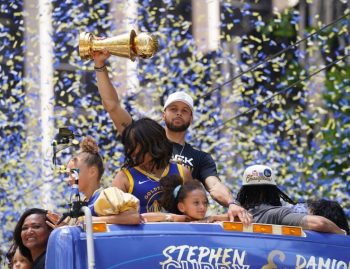NBA
NBA Daily: The NCAA’s Recent Policy Changes are Problematic

Going into 1995 NBA Draft, the NBA still allowed high school players to enter straight into the NBA but few had actually done so over the years. That year, Kevin Garnett, an extremely talented high school prospect, went straight into the draft from high school and went on to have a Hall of Fame career. Kobe Bryant and LeBron James, like Garnett, also went straight to the NBA from high school and each have also had Hall of Fame careers. Many other similarly situated players such as Rashard Lewis, Jermaine O’Neal and Tracy McGrady succeeded on the same path. Yet concerns remained that although there were individual success stories, perhaps it would be best overall to have kids mature a bit more before entering the NBA. Eventually, through collective bargaining, new rules were put in place that prohibited high school players from entering the league.
As time has gone on there has been some frustration with the fact that perhaps these young men, legally adults at 18 years of age, have been unfairly prevented from earning at least one year of significant income as an NBA rookie. There is also frustration, mentioned below, at how the NCAA and college programs have policed themselves (or failed to do so) over the years. There is rampant abuse and under the table dealing that has largely benefitted the people around these young athletes and the schools, while often times harming the players or not benefitting them in any tangible way. The FBI has been conducting an investigation into these practices, which has shed new light and more focus onto the situation. Accordingly, now there is widespread discussion and speculation that the NBA again intends to reverse course and allow players to bypass the collegiate game.
With accusations of impropriety, constant attacks against the amateur model and an ongoing federal investigation, the NCAA took drastic action last Wednesday to counter the negativity around the college game — at least in appearance.
NCAA basketball says it will now allow "elite" high school and college prospects to be represented by an agent. NCAA will also permit players to return to school if unselected in NBA draft.
— Shams Charania (@ShamsCharania) August 8, 2018
First the good part; players will be allowed to enter the draft and should they be not be chosen, the player may return to school under certain circumstances. Back at his collegiate program, a player can return to a place where he can continue to mature as a basketball player and as a college student. This is a nice option for many players and should have been available years ago.
For NBA teams, they now face the prospect of a first wave of high school seniors going straight to the NBA in addition to the other collegiate and international prospects. If it turns out that these high school prospects are collectively more prepared than expected and demonstrate they can contribute at a high level shortly after entering the league, there could be a sizable shift in how teams value first-round draft picks. Teams are already extremely hesitant to trade first-round picks, which means there would be some additional stagnation in the trade market. There are many complexities to this prospective new system that could have consequences that aren’t even foreseeable at this juncture.
Additionally, while this may be an appealing option for some players who are on the fence about going pro, it may not have as much widespread appeal. Some prospects may not realistically expect to be drafted. Once skipped over, a player is likely to seek compensation in the G-League or by playing international basketball. That’s the rub overall, the college game is sticking to the amateur model and the insistence that players not be compensated beyond the education they receive. Even worse, a player may have declared for the draft knowing that he might be leaving behind academic or conduct violations behind. Should that player attempt to go back, he would have to deal with any situation that joining the professional ranks would have avoided. The point here is that while this new rule may look good for the NCAA from a PR perspective, the truth is it may have little benefit to the college players overall.
Now the thornier part. As reported, the NCAA will allow “elite” high school prospects to obtain an agent. Previously this would have been a violation of NCAA rules that prevent amateur students from doing so. Should a player instead decide to go to college, he would have to break off his relationship with the agent. This adds more complications and issues to a system that is already plagued with questionable rules and policies.
In addition, it appears that USA Basketball was not initially thrilled to be put in a position to determine which players are considered “elite,” which could cause some more logistical issues. Also, there has been speculation about whether prospects participating in the USA Basketball system would be the only players selected or, at least, preferred over international prospects. Matt Norlander of CBS Sports spoke to NCAA’s senior vice president of basketball Dan Gavitt who explained this wasn’t the case.
“It is not going to be just the prospects who are Junior National Team players for USA Basketball. It’s going to be more than that. How that’s going to be determined, and how large a pool, is to be determined. That could be years away,” Gavitt stated.
There is much more to dive into on this issue unfortunately. The NCAA has seemingly taken a strategy to fixing issues that are symptoms of a bigger problem – that is the NCAA’s insistence on treating its players as students who should not be compensated rather than actual athletes. There are no easy solutions to this situation and adding more layers of complexity with unilateral changes such are likely to make matters worse.













